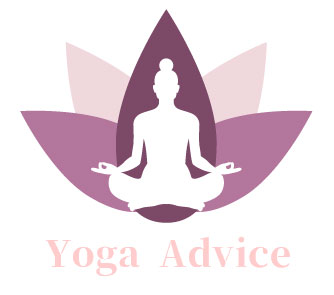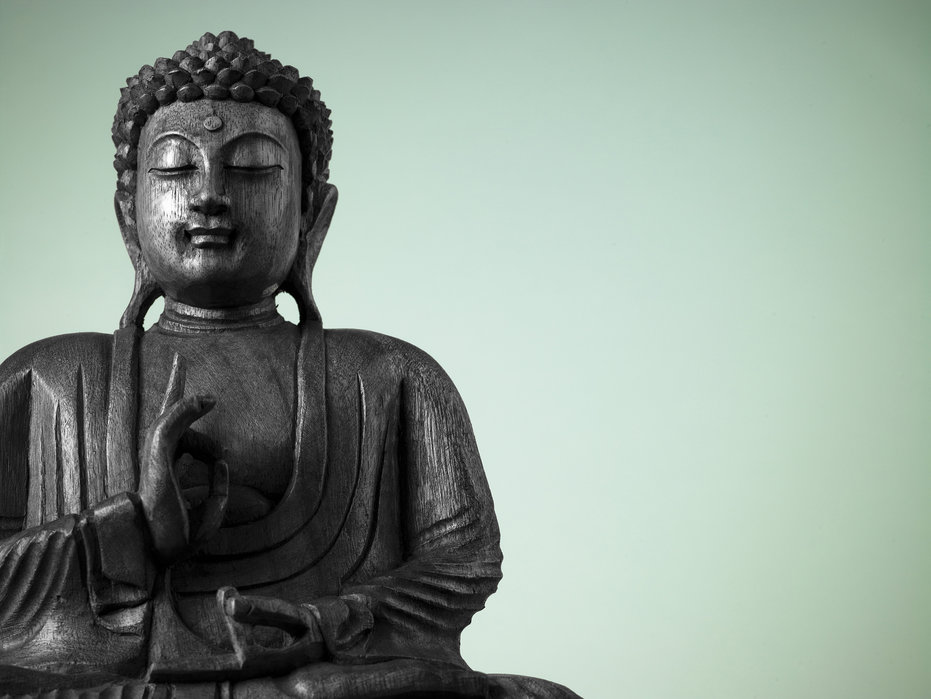The Precepts of Buddha
The precepts of Buddha ensure and guarantee to the practitioners the fact of not being reincarnated in lower worlds at the time of their next reincarnation for a new life. Of course the respect of these precepts must be paramount. The non-observance will thus involve terrible consequences on the life of the practitioner. We will present in this article the various precepts of Buddha.
The Nine Precepts that Refrain Passions
It should be noted that the Buddha's teaching is based on virtue. To achieve this virtue, the human being must respect precepts. There are nine precepts that are the foundation of virtue. They also restrain the passions. When they are well respected and established in the heart of the practitioner, he is able to protect himself against all the bad tendencies which would rise or which slumber in him.
It is also necessary to realize that these nine precepts are divided into three classes. First of all, we mention the faults committed by the body, namely murder, lust and theft. Second, there are the faults committed by the word, that is, lies, insulting words and slander. And finally, there are the faults committed by the spirit such as lust, false views and wickedness.
Misconduct by the Body
In order to avoid bad karma, one should not commit murder. One must not kill a living being other than oneself, not intend to destroy a life. Failure to respect these two factors leads to a karmic path. In other words, at the moment of the murderer's death, he will be drawn into a painful rebirth. The degree of intensity of the fault and the karma generated varies according to the motives, depending on the type of the victim. The latter can be a human being or an animal.
The most serious of all murders are the murder of a spiritual Master, father, mother or a religious person. Subsequently, theft is not as tolerated in the world of Buddhism. Stealing the wealth, property of others or objects that have been offered to the three jewels is strictly forbidden. Theft can manifest itself in various ways, including in a direct manner, i.e. it is the practitioner himself who has the intention and desire to appropriate the property of others either by force or deception. It can also be indirect through the intermediary of others. In any case, the most serious of all thefts is the theft of objects offered to the Three Jewels.
Moreover, lust is also a precept whose practice is prohibited. Adultery should therefore be avoided in Buddhism. A person consecrated to religious life who has made a vow of celibacy is also concerned by this precept. Moreover, sexual union with a spouse is forbidden near a religious monument or temple. It must be kept in mind that lust exists if the relationship takes place with a person under the protection of a relative or in the case of someone who is already married. Religious persons should avoid intimate or sexual intercourse in Buddhism as in all other religions. The most serious offences are incest and rape of one's mother.
The Faults Committed by the Word
Slander is one of the faults committed through the use of speech. Slander is unjustified and false criticism, invented with the aim of damaging the reputation or honor of others. In order to be able to manifest itself, there must be at least two people united in friendship. Slander which causes a rupture between the spiritual Master and his disciples or which destroys harmony in a monastic community is the two most serious cases of slander. Lying is not tolerated either, disfiguring a truth is already considered a lie.
The act of lying is complete when the interlocutor has allowed himself to be persuaded and its value is variable. One must be aware that there are three groups of lies. First of all, there are the lies uttered by someone who pretends to have reached higher states of consciousness, when this is not the case, and seeks to convince others of this. These lies lead to falling, that is, to painful rebirths.
Then there are the lies that aim at personal advantage at the expense of someone else. This is the most common form of lie. Finally, there is the lie that is neither for good nor for evil such as a wish, or a joke also called a benign lie. In any case, lying about the Buddha, deceiving one's Master, father or mother is the most serious.
In addition, insulting or abusive words are equally forbidden in the Buddhist community. The act is complete as soon as the speaker has understood the meaning of the insulting words. There are different ways of insulting, namely face to face to humiliate the interlocutor or indirectly through a third person, so as to hurt the person for whom the insults are intended. The most serious offences are insulting an arya or his parents.

The Faults Committed by the Spirit
Covetousness is counted among the faults committed by the mind. It is manifested by the desire and hope of possessing another's wealth or possessions. The act is accomplished the moment a plan is made to take possession of these possessions and one feels no shame towards oneself or others. The most serious form of covetousness is that of goods belonging to a religious community. Wickedness is the second fault of the spirit.
It manifests itself when there is an intention to kill, beat or destroy. Wickedness has three aspects. In the first place, it is the act of killing out of pure hatred or malice. Second, it is the act of thinking about the best way to harm one's enemy and also establishing an evil plan. Finally, it is the act of feeling hostility towards someone who has done harm but has already apologized. Those who commit the following actions - killing one's father, mother, an arhat, shedding the blood of a Buddha - are immediately dragged into hell at the very moment of his death.
The last fault committed by the mind is to have false sight, to be blinded or to be stubborn. The act is complete as soon as the person who has been wronged in his or her vision is himself or herself convinced of the non-existence of good and evil. Then, a person also has false sight when he denies causality and has neither right sight nor understanding. There are three classes of misconceptions. First is the denial that everything that exists is without cause. Second, the assertion that despite the existence of a practical way, the attainment of Freedom is impossible. And finally, denying Buddha himself, that is, doubting that he is a being who obtained Enlightenment through his own efforts.
Observing and respecting these Nine Precepts protects against actions that could lead to bad karma.

The Noble Eightfold Path
Concentration, moral conduct and wisdom are also part of the precepts established by Buddha himself during his awakening. The goal is to suppress suffering by seeking the causes of ignorance, attachment and aversion. To reach this goal, the Buddha discovered, followed and taught a method that leads to success. This is the Eightfold Noble Path which can be divided into three stages.
These are refraining from harmful actions or ethical conduct, developing the ability to consciously direct and control one's own mental process, and finally purification of the mind. Anyone who wants to practice Dharma must begin by practicing the value of ethical conduct. So this is the first step.
Therefore, one must refrain from all actions, words and deeds that could hurt others. To avoid anarchy, every society requires this behavior. It should be noted that actions that hurt others are necessarily caused by attachment, aversion and ignorance. Committing such acts also means taking two steps backwards and spoiling any progress that leads to the goal.
Three parts of the Noble Eightfold Path enter into the practice of Shîla namely right speech, right action, and right life.
The Right Word
Speech must be pure and beneficial. To achieve purity, one must remove coarseness, and understand what impure speech consists of. Such acts include lying. To have a righteous word means not to spread rumors, gossip and slander, to avoid using harsh words that hurt others without having beneficial effects. Refraining from all these impure words makes it possible to live in harmony in Buddhist society. Moreover, it is said that the truth calms quarrels and encourages good understanding.
Right Action
The action must also be pure. The understanding of the impure action makes it possible to avoid the practice of this one. Such acts include murder, theft and sexual misconduct. Avoiding these impure actions leaves only the right or beneficial action. The one who wants to practice Dharma must follow 5 precepts: abstain from killing any living creature, abstain from stealing, do not commit sexual misconduct, do not utter false words, and finally do not use drugs or alcohol. These five precepts are the essential minimum necessary for moral rule.
The Just Life
Everyone must secure their resources in a fair and equitable manner. One must be aware that there are two criteria for a fair lifestyle. First, there must be no obligation to violate the five precepts in one's work, and thus avoid what would be detrimental to others. Second, one must never encourage others to violate the five precepts since this will also cause harm. Livelihood should not directly or indirectly involve any harm to another. Thus, any livelihood that involves killing, be it a man or an animal, is obviously not a proper way of life.
Selling alcohol or other drugs can be just as profitable. But it is a roundabout way of encouraging others to use toxic products and thus to harm themselves. Running a gambling house can be very profitable, but everyone who comes to gamble there hurts themselves. Selling poisons or weapons, ammunition, guns, missiles can be a good deal. However, it threatens the peace and harmony of the crowds. None of this is a just livelihood. The same is true in the case of work that, although it does not actually harm others, is done with the intention of causing others to suffer. Such is the case of the doctor who hopes for an epidemic or the trader who is expecting a famine.
On the other hand, every human being is logically a member of a society. The fulfillment of obligations to that society is the fruit of the work done by that society. Therefore, every action performed by a human being must be useful to his fellow human beings in various ways. Means of subsistence can thus be perceived in return for these good actions. Even a monk or recluse has his own work by which he earns the alms he receives. This work is to purify his spirit for the good of all. If he begins to exploit others by deceiving them, doing magic tricks, or falsely boasting of spiritual realization, he will give less importance to the precepts that he has sworn to always follow during the rite of passage to become a Buddhist. He will therefore have to repent and not try again in the future.


